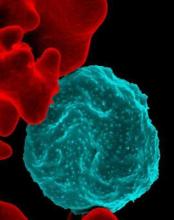The high transient efficacy of the malaria vaccine candidate RTS,S/AS01 could be useful in eliminating malaria in low-endemicity areas, according to Dr. Roly Gosling and Lorenz von Seidlein.
Although RTS,S/AS01 was approved by the European Medicines Agency for children aged 6 weeks to 17 months, it underperformed in a clinical trial of more than 15,000 children in sub-Saharan Africa. While initial results were encouraging, vaccine efficacy dropped quickly over time. Booster shots delivered 20 months later did not significantly improve efficacy. The vaccine was declared safe, but meningitis was found in a significant number of vaccinated children. As a result, the World Health Organization did not include it in the Expanded Programme of Immunisations.
Without strong endorsement from the WHO, it is unlikely that other organizations will purchase RTS,S/AS01, resulting in a loss of millions of dollars as well as a decade-long delay before a new malaria vaccine can be developed, the investigators said. Using the vaccine in an area such as Southeast Asia in adults, where malaria has low endemicity and high resistance to antimalarial drugs, would play to the vaccine’s strengths, as would employing a reactive ring vaccination strategy, they noted.
“Before such alternative pilot programs can take place, additional research is needed. The large RTS,S/AS01 trial in sub-Saharan Africa vaccinated children; the dose required to vaccinate adults is less well established. It is essential to establish the safety and immunogenicity of the intended vaccine dose in populations other than African children and adults through bridging studies,” the investigators wrote.
Find the study in PLOS Medicine (doi: 10.1371/journal.pmed.1001994).


